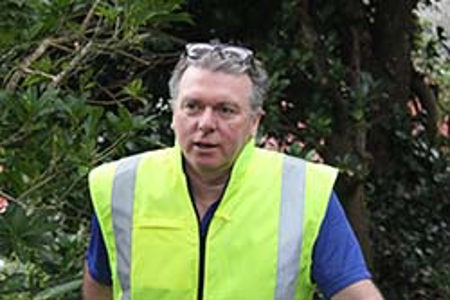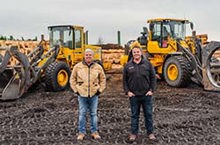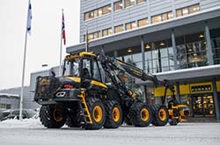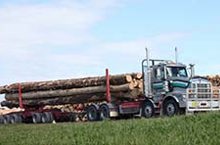
With Mental Health Awareness Week running from 26 September to 2 October, Safetree says it’s a good time to think about how forestry can better look after the mental wellbeing of workers. In particular, the impact business decisions and working arrangements can have on workers’ wellbeing.
“For example, we've had feedback about the pressure contractors and workers in Tairāwhiti are under due to low log prices”, says Acting National Safety Director, Safetree/Forest Industry Safety Council (FISC), John Lowe. An estimated 26 crews (representing about 30-40% of Tairāwhiti’s harvesting capacity) have either exited the industry or moved their crews out of the region, he says. Other crews are driving long distances every day to remote sites as they chase work.
The implications on wellbeing (physical and mental) and safety are obvious. These include fatigue from long commutes raising the risk of accidents, stress from being away from the family for extended periods, and financial stress from for those whose crews are parked up.
“We've also heard of forest managers reducing targets but still insisting contractors are on site five days a week. Obviously all forestry business (owners, managers, contractors) need to adapt to market conditions, and this can involve making some difficult decisions. But it's important to at least understand the impact these decisions could be having on others in the supply chain,” says Mr Lowe.
The best way to get this understanding is to talk to those who will be affected, and see if there are ways to reduce or eliminate the harmful impacts on people's wellbeing and safety, he explains.
“At the very least, we want to be sure that when things do pick up, we still have good contractors and workers available and willing to work in our forests.”
Safetree has some forestry-friendly resources to support good mental wellbeing:
- Where to get help: Contact details for organisations that can help if people are struggling.
- Tailgate health cards: Simple fact sheets covering key health issues including depression.
- Fatigued or Fit for Work: Information on how to identify and prevent fatigue.
- Vitae Services: Access to discounted counselling for people in forestry.
- Forestry's top wellbeing risks: See a list of the biggest physical and mental wellbeing risks in forestry.
Safety Alerts
Some recent Safety Alerts from Safetree include:
Missing road signage: A crew started work on a Monday, falling within two tree-lengths of a road, not realising their warning signage had been removed from the roadside over the weekend. To help prevent this happening:
- Get crews to talk about signage at toolbox meetings to prompt relevant workers to check signage is in place.
- Put a prompt in the felling book to remind operators to check signage.
- Put a sticker in the cab as another reminder to operators to check signage.
Log load security: The New Zealand Forest Owners Association and New Zealand Farm Forestry Association have recently been notified of three events where log trucks have either had a log about to fall off their load or the chains were so loose the logs were moving. This Alert is a reminder that effective load security requires:
- A fit for purpose log truck and trailer, an experienced loader operator and a truck driver committed to ensuring the load is secure.
- Checking the load is secure when leaving the loading area and again prior to exit onto public/main roads, and during the balance of the journey.










